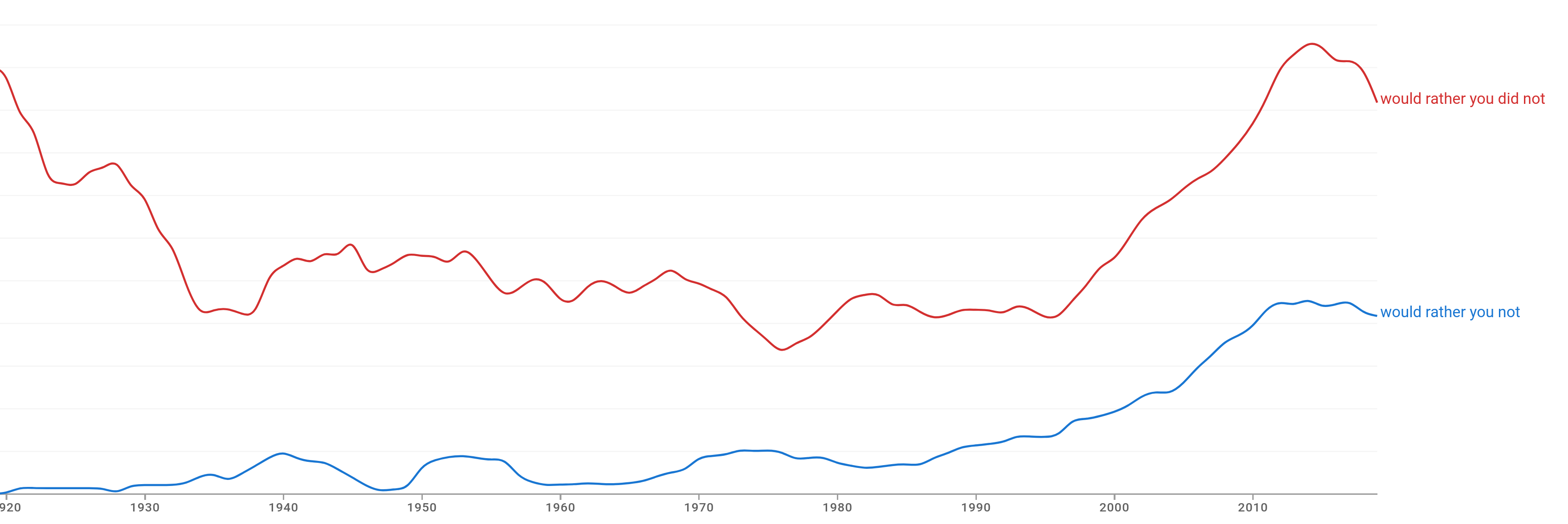As a Brit, I really don't like OP's first version (without "do-support"). Here's the BrE usage chart...

...where I expect most of even that small amount of the "non-standard" instances are misclassified AmE texts anyway. It's also worth pointing out that the usage was virtually unknown even in AmE a century ago, and it's still a minority usage today...

...so I'd advise using do-support. I don't believe it's worth postulating a possible difference in meaning anyway - even if a few Americans think there's a difference, that would probably be more than offset by confusion among others who find the usage unnatural (not just Brits, I'm sure).
Note that when the speaker is the subject, we don't normally repeat the pronoun anyway, and do-support is rarely included. On both sides of the Atlantic it's...
I'd rather not talk about it
...not...
I'd rather I didn't talk about it
...or....
I'd rather I not talk about it


